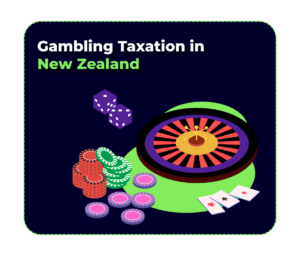Slot machines have long been a staple of the gambling industry, attracting millions of players worldwide. These colourful and noisy machines, found in casinos, bars, and even online, have a unique allure that keeps people coming back for more. However, have you ever wondered why people get so hooked on slot machines? In this article, we will delve into the psychology behind these popular games and explore the factors that make them irresistible to players.
The Element of Uncertainty
One of the key reasons behind the addictive nature of slot machines is the element of uncertainty. Every time you pull the lever or press the spin button, you are unsure of what the outcome will be. Dopamine, the feel-good neurotransmitter linked to reinforcement and pleasure, is released when this unpredictability triggers the brain’s reward system. The anticipation of a potential win keeps players engaged and coming back for more, as they chase the thrill of a big payout.
Near-Miss Effect
Slot machines are designed to create a sense of near-misses, where the symbols on the reels come tantalizingly close to forming a winning combination but fall just short. This near-miss effect tricks the brain into thinking that a win is within reach, even when it’s not. Research has shown that near-miss outcomes increase the level of arousal and motivation to continue playing, as players believe they are on the verge of a big win. This psychological manipulation plays a significant role in keeping players hooked.
Reinforcement Schedules
Slot machines employ various reinforcement schedules to keep players engaged. One of the most effective is the variable ratio schedule, where rewards are delivered unpredictably. Unlike fixed-ratio schedules where rewards are given after a specific number of plays, variable ratios keep players guessing, making the experience more exciting and addictive. This randomness keeps players pulling the lever, hoping that the next spin will be the lucky one.
Lights and Sounds
Slot machines are made to be both aesthetically pleasing and auditorily engaging. The flashing lights, ringing bells, and catchy music create a multisensory experience that heightens excitement. These sensory cues reinforce positive feelings and keep players in a state of arousal, making it difficult for them to walk away. The sensory overload is carefully engineered to keep players immersed in the game for longer periods.
Losses Disguised as Wins
Slot machines often use a technique known as “losses disguised as wins” (LDWs). In an LDW scenario, players receive a payout that is less than their original bet, but it is presented as a win. This deceptive tactic gives players a false sense of accomplishment and encourages them to keep playing. The brain interprets these LDWs as wins, releasing dopamine and reinforcing the behaviour of playing the slots.
Illusion of Control
Many players believe they can influence the outcome of a slot machine by using certain strategies or timing their spins. This illusion of control is a powerful psychological factor that keeps players engaged. Actually, random number generators are used by slot machines to ensure that each spin is distinct from the last. However, the belief in personal control over the game keeps players coming back to try and outsmart the machine.
Social Aspect
Slot machines have evolved beyond their physical forms and are now prevalent in online casinos and mobile apps. This accessibility has added a social element to slot gaming, as players can share their experiences, wins, and losses with friends and online communities. The sense of belonging and camaraderie with other players can enhance the addictive nature of slot machines, as players seek validation and support from their peers.
Escapism
Slot machines offer an escape from everyday life. The colourful graphics, engaging themes, and the chance to win big provide a temporary distraction from stress, anxiety, and boredom. This escapist quality can be highly addictive, as players may turn to slot machines as a form of self-soothing or as a way to cope with life’s challenges.
Loyalty Programs and Rewards
Casinos often offer loyalty programs and rewards to entice players to keep coming back. These programs provide players with incentives such as free spins, cashback, or other bonuses. These rewards tap into the human desire for reciprocity, where players feel obligated to continue playing to “earn back” the perks they have received. This psychological principle reinforces player loyalty and addiction.
Conclusion
The psychology of slot machines reveals a complex interplay of factors that contribute to their addictive nature. From the element of uncertainty and near-miss effect to sensory cues, reinforcement schedules, and the illusion of control, slot machines are carefully engineered to keep players engaged and coming back for more. Understanding these psychological mechanisms can help individuals make informed choices about their gambling habits and seek support if they feel they are becoming addicted. Ultimately, the allure of slot machines lies in their ability to tap into the human psyche, offering an exciting and potentially rewarding experience that keeps players hooked.





